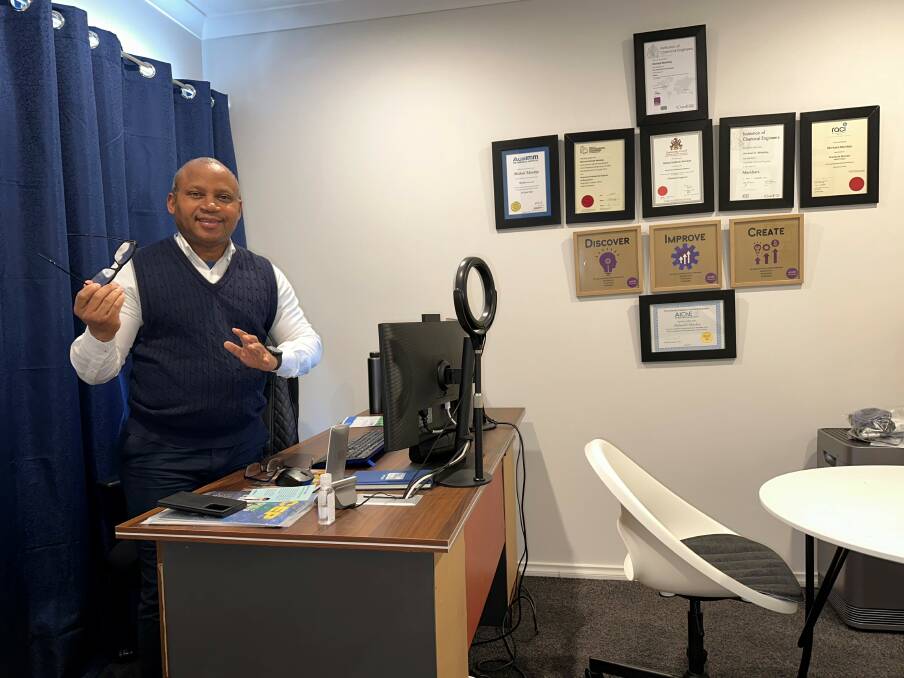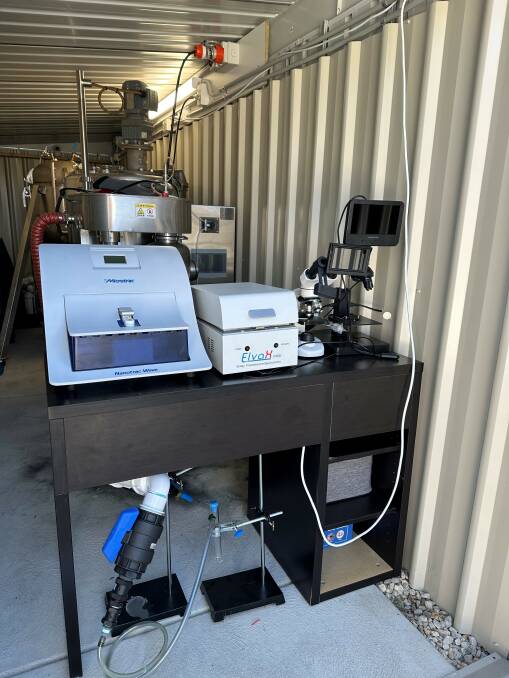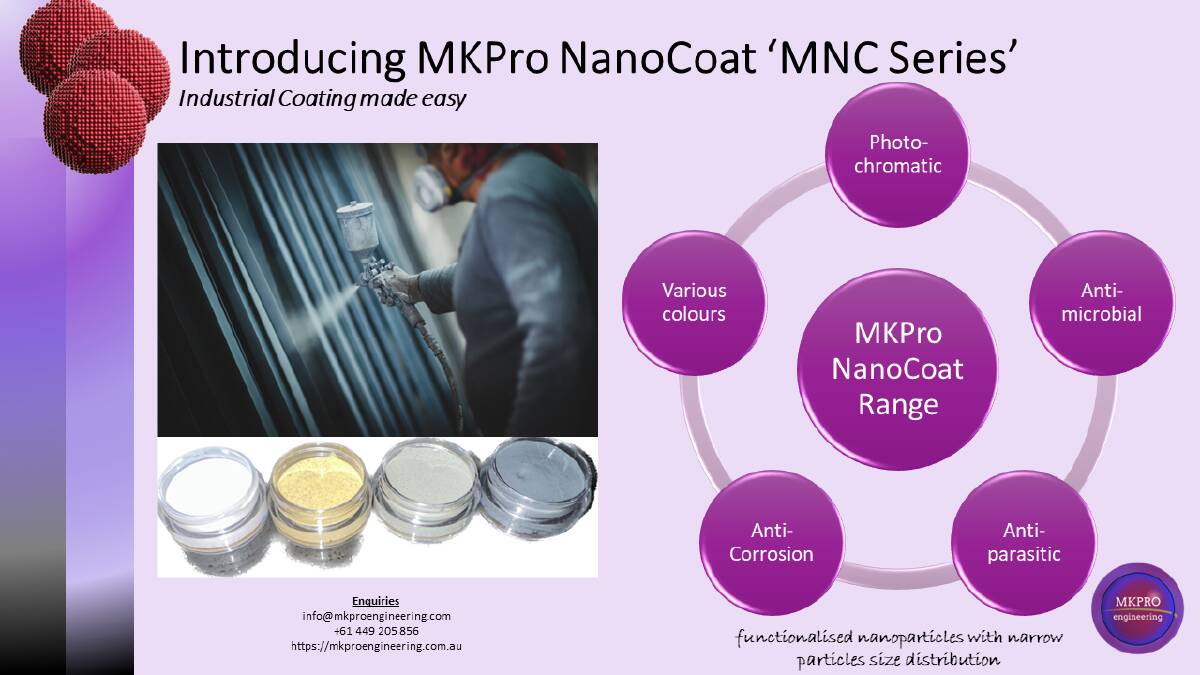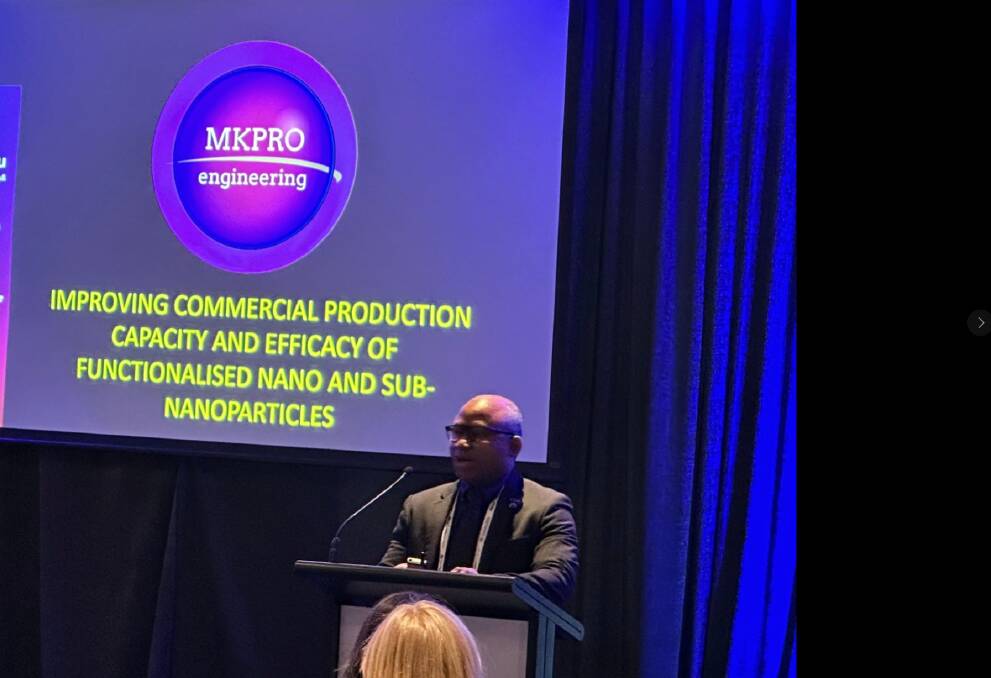From medical to solar to space; MKPro Engineering is using advanced technology to make improvements across many industries

This is branded content for MKPro Engineering.
You don't need to know how a TV works to know you can enjoy the benefit of the entertainment it provides.
This is much like MKPro Engineering, a performance-driven company focused on simplification, productivity and profitability for their customers by handling complex issues.
The Ballarat-based company works across a range of fields including manufacturing, biomedical, solar power and even space travel.
"What we're doing is complex and technical," MKPro Engineering director Dr Michael Akindeju said.
"When I speak with people I focus on the benefits and what value our work has to them."
These benefits are vast and varied across different industries including biomedical, solar power and space travel.

In the biomedical field the focus is on how nanoparticles can be deployed to enhance quality of life in a variety of applications including therapeutics, diagnostics, imaging, and drug delivery.
Currently, the nanoparticles created by MKPro Engineering are prospected for use in heart, lungs, liver, and kidney treatments.
"Those are what we're working on at the moment but who knows how they will evolve as opportunities are endless," Dr Akindeju said.
MKPro's nanoparticle synthesis is a superior process that targets product purity, size, and predictable size distribution to ensure value for money.
"Previously, as known in the industry, imported nanoparticles had inconsistent sizing and very poor particle size distribution leading to wastages; it wasn't efficient," Dr Akindeju said.
"We can now target a particular size and shape so our clients can use our products without wastages.
"Also, the shape is particularly important in biomedical applications as it has contributory influence on clearance rate to prevent nanotoxicity."
Beyond MKPro's onsite characterisation, the products are further validated at Government laboratories including the Australian National Fabrication Facility (Victoria Node) and the Melbourne Centre for Nanofabrication.
This precision is replicated in another area with the recent development of the MKPro NanoCoat product series. A coating product for assuring integrity for infrastructures, products, and any finished good that require coating or even aesthetic finishing.

MKPro NanoCoat series come in several colours, and have anti-microbial, anti-corrosion, photochromatic, and anti-parasitic properties.
"This is very useful, for example, in reducing the viral load contractable from surfaces," Dr Akindeju said.
Working across different industries is a speciality for MKPro Engineering with work in solar systems and space travel also underway.
"Collaborating with Federation University, Australian National University, Dhruva Space, IIT Madras, and Nano Frontier Technology, we are collectively and severally developing products to enhance performances of solar panels and systemic cooling for space vessels," Dr Akindeju said.

Having these advanced technologies developed in Ballarat is helping to put the city on the map.
"Hopefully someday soon Ballarat can become a major hub for nanoparticle synthesis," Dr Akindeju said.
But why Ballarat? For Dr Akindeju the answer is simply "it feels like home."
After relocating to Australia in 2006, he lived in Perth for eight years before finding Ballarat felt like the right fit.
"The opportunity and lifestyle I've had in Ballarat since moving here made it feel more like home for me," Dr Akindeju said.
"It is my dream to create opportunities for people like me who have specialised skills in the region. Hopefully, what we are doing can be looked upon as a model for others, and together we can create a developmental momentum for advance regional developments."
And create momentum he has with MKPro Engineering just one branch of a larger organisation, MKPro Group which includes other organisations MKPro ReNew, MKPro Biogas, and MKPro Holding.
While already working across biomedical, solar and space travel - what could possibly be next for MKPro?
Dr Akindeju hints there are exciting developments on the horizon, but we will have to wait to find out the finer details.


